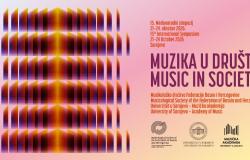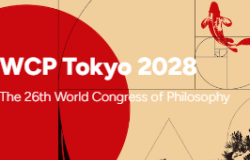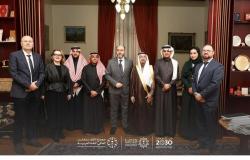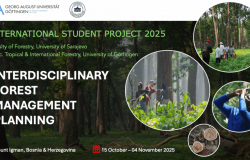The conference "Preparing the Universities of the Future: (Re)building Inclusive and Sustainable Campuses" has ended

"Preparing the universities of the future: (Re)building inclusive and sustainable campuses" is the name of the two-day conference organized by UNICA - Network of Universities from the Capitals of Europe and the University of Sarajevo, which was held on April 25 and 26, 2023. The conference was opened with speeches by the conference organizers, followed by the first session, which answered the questions of how universities and cities coordinate mutual transformations through their interaction.
Rector of the University of Sarajevo, prof. Ph.D. Rifat Škrijelj emphasized that the University of Sarajevo, in the host of this event, continues to demonstrate its commitment to establishing and maintaining an academic platform that gathers academic communities of universities from European metropolises for academic exchange and further strengthening of our unique network. "Success in developing synergy between universities and their local communities will be the best promoter of universities and their importance for community transformations aimed at sustainability, inclusiveness, and openness".
The coordinators of the UNICA & City project Katarzyna Wojnar from the University of Warsaw and Tobias Reckling from the University of Vienna, greeted those present. Wojnar pointed out that it is necessary to find ways to develop and cooperate with universities during the economic and pandemic crisis. Accordingly, this conference is a place that will unite experiences, opinions and ideas from all over Europe. Professor Reckling said that Sarajevo is the place where the conference will present the results, exchange knowledge and at the same time enjoy this city.
The Mayor of Novo Sarajevo Municipality, Mr. Hasan Tanović, spoke about whether the city needs a campus or a campus needs the city and said that it is impossible to answer this question until we come to the realization that educated young people are the bearers of social progress and development in the community.
A panel discussion was held in the first session, chaired by prof. Ph.D. Nihad Fejzić, director of the Center for Interdisciplinary Studies "Prof. Ph.D. Zdravko Grebo" of the University of Sarajevo.
The opening address was given by Lejla Hajro, director of the Directorate for Construction and Maintenance of the University of Sarajevo Campus. Director Hajro presented experiences from the University of Sarajevo, which is currently in the phase of significant renovation and construction of the Campus with funding from the government and the European Investment Bank. He spoke about the specificity of the University of Sarajevo Campus, its design, projecting and reconstruction, which is located in the city's administrative centre and was originally a military barracks.
Ivanka Popović from the University of Belgrade spoke about the Future of sustainable campuses through regional cooperation. Urban green areas and quality of life is the topic that Mirzeta Memišević Hodžić, senior assistant at the Faculty of Forestry of the University of Sarajevo, spoke about, and Wendy Bos, in front of the City of Amsterdam, presented how universities can be a catalyst for change. The attache for the cooperation of the French delegation in Bosnia and Herzegovina, Mr. Sylvain Rigollet, also participated in the panel discussion.
On the first day of the conference, three case studies were presented: Science Shop: Drawing Locals and university closer (Andras MARTONI, Science Shop manager, Central European University); the University of Edinburgh Delivering Positive Change for Local Communities (Matthew LAWSON, Senior SRS Learning, Teaching and Reporting Manager, University of Edinburgh); The Climate House and Oslo Science City (Vebjørn BAKKEN, Director at the Energy and Environment Office, University of Oslo).
As part of the first day of the conference, a visit to the University of Sarajevo Campus was arranged.
On the second day of the conference, April 26, a session was held on the expectations that stakeholders and the university community have from the Campus. In today's session, chaired by prof. Ph.D. Enita Nakaš, vice-rector for international cooperation of the University of Sarajevo, held a panel discussion where five topics were presented.
On the topic Campus and city: From the perspective of international students, M.Sc. Adnan Rahimić, senior expert associate for international cooperation at the University of Sarajevo, and Katrīna Sproge, vice president of the European Student Union, presented on the same topic. CampArt: The university campus as a platform for creative industries is a topic that Faris Hadrović (Garden of Dreams Festival) discussed. Mario Manna, Luiss Guido Carli and Despoina Mantiziari from the Aristotle University of Thessaloniki spoke about the future-oriented university from a generational perspective. In contrast, Helen Sooväli-Sepping, vice-chancellor for a green transition of the Tallinn University of Technology, spoke about campus infrastructure towards sustainable solutions and attracting visitors and the campus community technology in Tallinn.
Also, in the second session, two case studies were presented: Charles University – on a Cooperative Way to Sustainability (Jana Dlouhá, PhD., Charles University Environment Center) and Towards the Multi-functional, inclusive and sustainable campus - snapshots from Universities around the World (Katarzyna Wojnar, Assistant Professor, University of Warsaw).
Prof delivered the final words. Ph.D. Enita Nakaš, the vice-rector for international cooperation of the University of Sarajevo, pointed out that when everything that was said at this conference is summarized, it can be concluded that both students and professors and everyone else involved in the processes within the academic community are doing everything in their power to make the campuses made it as good as possible. However, also that, unfortunately, it is not visible to the citizens, and probably for the same reason it is not visible to the authorities either. "This is why we must add art, festivals, seminars and other interlopers to the campus. Everyone must feel included but also responsible for the campus spaces. Each Faculty must find its own space on the campus, e.g. forestry in the planning of green areas, architecture in design, agriculture and veterinary medicine in the eco-production of plants and food within the campus, and the medical group through spaces for mental health and the like. This would make life much easier for us as professors, students and citizens," Vice-Rector Nakaš pointed out.
After the working part of the conference, the participants visited the Music Academy of the University of Sarajevo, where they met with the dean, prof. M.Sc. Ališer Sijarić, and attended a concert performed in their honour by the students of the Academy. This was followed by a visit to the Catholic Theological Faculty of the University of Sarajevo, where they toured the Faculty's academic and sacred spaces and a high terrace with one of the most beautiful views of Sarajevo. At the Faculty of Islamic Sciences of the University of Sarajevo, the vice dean prof. Ph.D. Aid Smajić welcomed the conference participants, presented its history and development, the history and architecture of Sarajevo, and spoke about Islam in Sarajevo and Bosnia and Herzegovina.















































